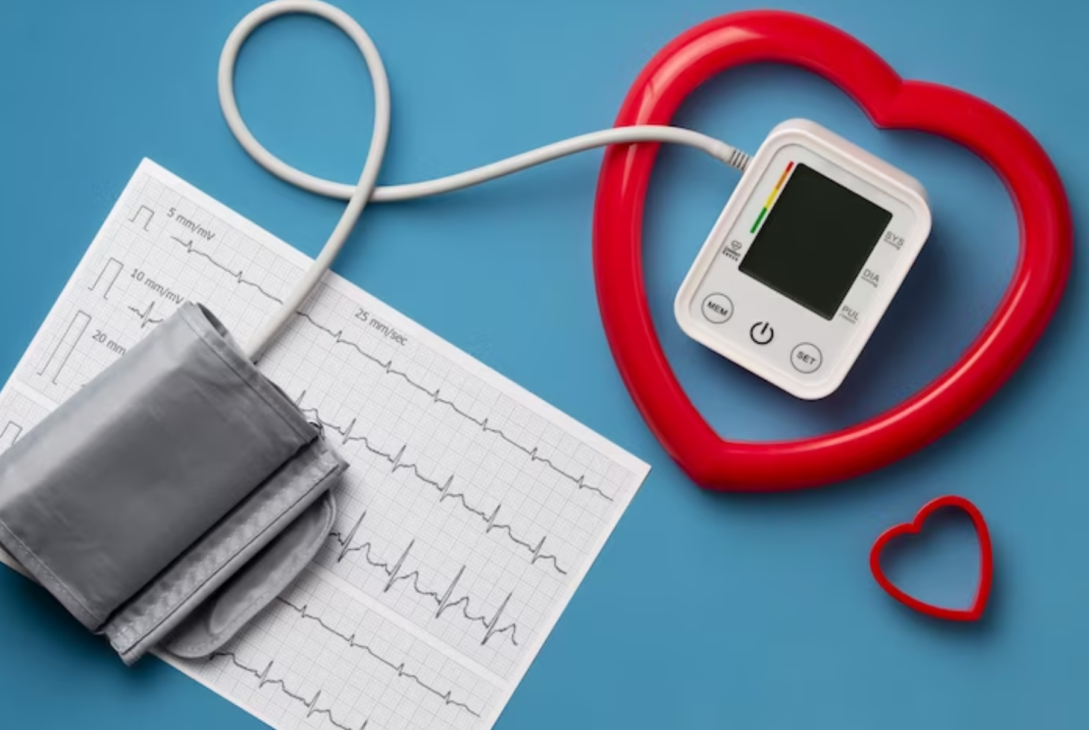Understanding your blood pressure numbers and consulting doctors is the only key to controlling it. To make you familiar with what exactly hypertension is and how its rising and falling numbers affect the functionality of your body and other information you’ll get through this blog. So, let’s start and go to the end of this blog to learn interesting facts about high blood pressure.
What Does Actual Blood Pressure Mean
It is the pressure of blood, mainly to the walls of arteries. These arteries carry blood from the heart to other parts of the body, and in this way, normal blood pressure helps in the body’s overall blood supply and functioning.
If your blood pressure rises and falls too much, you need to see the doctor. Two numbers measure blood pressure. The first is called systolic blood pressure, which determines the pressure in the arteries when the heart beats. The second number is diastolic blood pressure, which measures the arteries’ pressure when the heart rests between the beats. The systolic value must be 120 for the normal range and 80 for the diastolic. In short, it must be “120 over 80”(120/80 mmHg.)
What is high blood pressure (Hypertension)?
A blood pressure recorded higher than the normal range is known as High BP or Hypertension. It’s normal to have varying blood pressure throughout the day per your activities. But if you have consistently high numbers or above the normal range, then it’s Hypertension and an issue of concern. It leads to more health problems like heart disease, heart attack, and stroke.
5 Symptoms of high blood pressure
One of the common symptoms of hypertensive crisis is headache. Too much pressure inside the brain vessel during hypertension can cause severe headaches. According to the recorded hypertensive crisis-related symptoms, around 22% of patients of hypertensive experienced headaches. So, next time you have a severe headache, visit the health experts.
Blurry Vision
Are you noticing any vision problems?
FYI, blurry sightedness is another sign of hypertension. As Dr. Bhakta says, high pressure of blood can damage the eye’s blood vessels and may also lead to any emergency related to your vision. Therefore, it’s necessary to consider the signs of blurry vision and consult your doctor immediately.
Chest Pain
Chest pain due to high blood pressure is very common. It occurs mostly when your heart arteries aren’t getting good blood supply and severe pain in the chest is experienced.
Shortness Of Breath
The other serious symptom of High BP is Shortness of breath. Due to excessive hypertension, there occurs an increased cardiac workload, which leads to difficulty in breathing. When the heart is not able to pump all the blood properly, in that situation, the blood and pressure back up into the lungs and cause Shortness of breath.
Kidney Damage
According to the National Institute of Diabetes and Digestive and Kidney Diseases, the constricted blood vessels cause failure or damage to the Kidney due to high pressure of blood. Kidney damage in high blood pressure is due to the narrowing of kidney blood vessels, which makes kidneys less capable of eliminating excess fluids and waste.
Have a look at the following blood pressure categories.
Normal
A normal pressure of blood range is less than 120/80 mm Hg. It indicates a heart-healthy body.
Elevated
If the readings consistently range from 120-129 systolic and less than 80 mm Hg diastolic. Then, you have elevated blood pressure and can develop hypertension if timely precautions are not taken to control it.
Hypertension Stage 1
Hypertension Stage 1 records 130 to 139 systolic readings or 80 to 89 mm Hg diastolic blood pressure. You are prescribed to take a few medications and lifestyle changes to avoid the risk of atherosclerotic cardiovascular disease, or ASCVD, such as heart attack or stroke.
Hypertension Stage 2
If the pressure of your blood is consistently 140/90 mm Hg or higher, it’s a Hypertension Stage 2. In this, you have to take medications and make certain changes in your lifestyle, too.
Hypertensive crisis
In this alarming stage, you need to contact your doctor if your readings exceed 180/120 mm Hg. You may experience chest pain, back pain, and sudden organ failure at this stage.
Final Words: When you need to visit the Doctor
On experiencing any of the symptoms mentioned earlier, you need to visit a healthcare provider to discuss the symptoms and take tests to find the cause. Do not be mistaken to avoid visiting the Doctor and wait if the blood pressure comes down on its own. In case you are experiencing any uneasy symptoms, immediately consult the Doctor.








